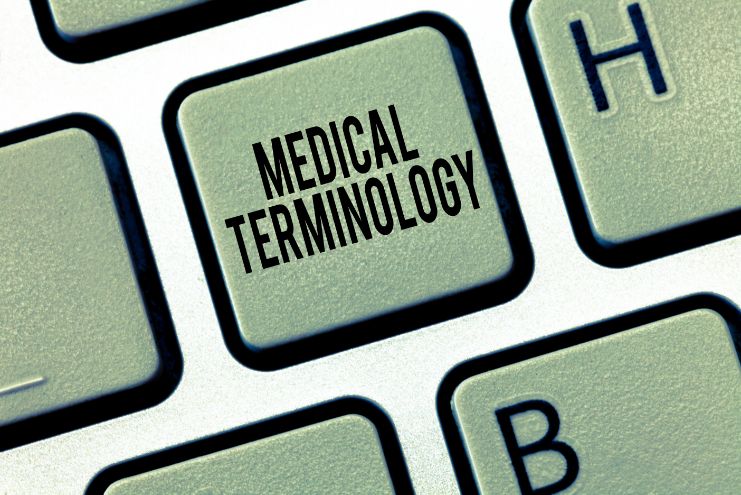
The U.S. healthcare industry generates a vast amount of medical and insurance documents every day. As a result, there is a need for specifically trained workers dedicated to the documentation, classification, and medical coding of patient information.

A Medical Coding Specialist, also referred to as a Medical Billing and Coding Specialist, Medical Insurance Billing and Coding Specialist, or Medical Coder, is a professional in the healthcare management field who records the procedures and treatment a patient is prescribed, and then, in standardized industry-wide classification codes, submits the information to insurance companies to receive payment. The medical coding specialist (MCS) will also review electronic healthcare records (EHR), and must keep patient information confidential at all times. A Medical Coding Specialist might contact patients, physicians, and insurance companies to resolve billing questions. However, he or she is not a medical assistant, does not perform any clinical duties, and is not a computer coder/programmer.
As mentioned above, the MCS has no clinical contact with the patient, and will most likely work in a medical office setting at a hospital, clinic, or senior/assisted living facility. While work may be performed remotely during times of pandemics or other emergencies, most employers prefer to have their Medical Coding Specialists on the premises.
Because medical insurance billing and coding requires specialized skills and knowledge, completing a specialized training program is recommended. On average, a Medical Billing and Coding diploma typically takes between a year and a year-and-a-half to complete. Some programs, such as the one offered at the Institute of Medical and Business Careers (IMBC), includes the Nationally Registered Certified Coding Specialist (NRCCS) exam and certification, and an internship providing on-the-job experience. There are online programs without internships which can be a good option for those who need to work at their own pace.

First and foremost, it must be noted here that in the current pandemic, even those who work in medical offices that are in separate facilities from patient treatment areas will most likely be required to wear masks, respect respiratory hygiene measures, sanitize workspaces, and practice all virus anti-propagation protocols put in place by the employer. The severity of measures taken will depend on the environment where one works and are meant to ensure your safety as well as the safety of the patients.

For the MCS who works in a hospital setting, the first thing they would do would be to wash or sanitize their hands, and during times of pandemics or other emergencies, they would place a mask on their face. Depending on the zone of the hospital where they work, they could need to change into scrubs or a uniform. However, scrubs may not always be required for medical billers, as they are a back-office administrator who seldom has face-to-face interaction.
Then, they would proceed to the billing department or administrative offices of the hospital and report to their workspace, typically a desk with a phone, computer, and printer. Most medical billers will likely be stationed in a cubical area, out of view from patients and physicians. Then, the specialist would log in to the computer and open the necessary software to process patient records securely.
Once the MCS has received the day’s assignments from the supervisor or immediate superior, data entry for each assigned patient chart would begin. The number of patient charts the MCS would be responsible for would depend on the chart complexity and the pre-established standards of the hospital. Then, medical information from the patient charts would be transcribed into standardized alphanumeric insurance codes so claims could be processed on time. These codes are called ICD-10. This is the standard classification system that all physicians, hospitals, and insurance companies leverage to communicate accurately.

In complex cases, the Medical Coding Specialist would consult with colleagues, administrators, and clinical personnel to ensure the proper codes are used. To coordinate billing codes and diagnoses, the MCS may also need to speak on the phone with care providers such as nurses, doctors, or insurers, and may also need to communicate over email to coordinate reimbursement for medical procedures. Furthermore, he or she must verify with doctors in cases of illegible or ambiguous notes to avoid mistakes or inaccuracies.
When the workday is just about over, the MCS would secure patient charts, back up files, shred confidential documents that are no longer needed, and would close programs by logging out of applications. Depending on the office where he or she works, the desk, workspace, and hands might need to be sanitized again, and then the MCS would leave the premises.
In all, becoming a Medical Coding Specialist is a great job for a person who enjoys medical-related work in an office setting without direct patient contact. A candidate must have good communication skills, meaning they can speak on the phone with ease in what can be a busy environment. Also, the potential specialist in this field has to enjoy working at a desk; all of his or her duties involve working at a computer for most of the shift. However, although no clinical tasks are involved, the work is rewarding and satisfying because the MCS contributes greatly to patient care and allows the doctors to focus on patients – not paperwork.
Consider researching different educational institutions to see what programs they offer, and find the program which works best for you. Whether you want to attend on-campus or prefer online courses that you can complete in your own time, a good place to start is the Institute of Medical and Business Careers, which offers both. Call, click, or chat with an admissions representative today.
More on medical billing and coding specialists